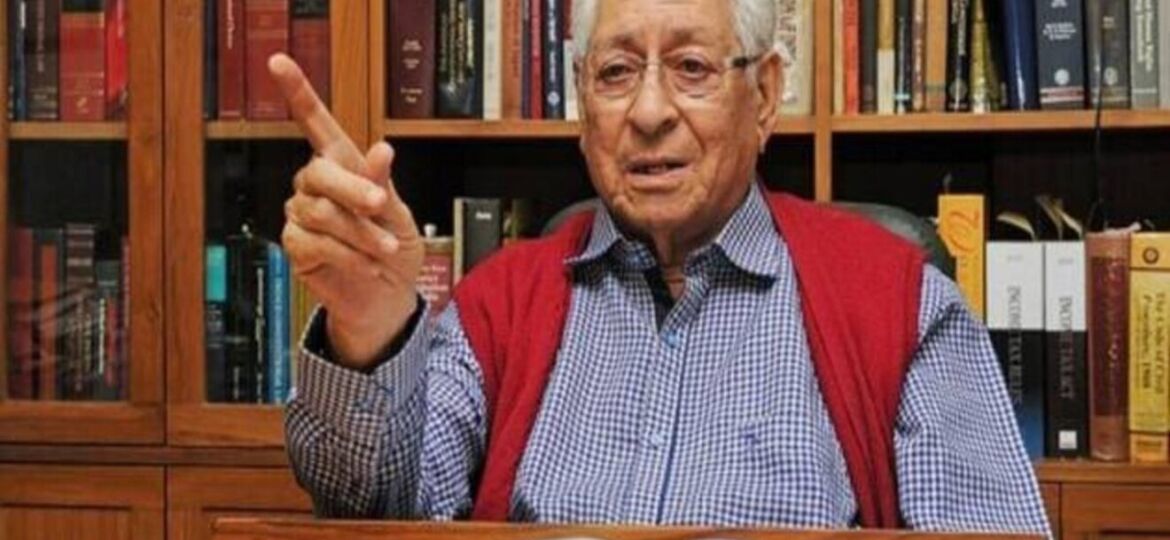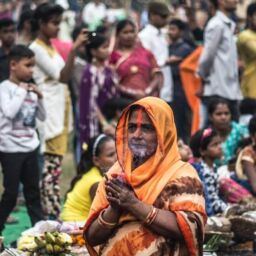
Fali S. Nariman in his autobiography “Before Memory Fades” remembers Mr. Sorabjee’s entry into the chambers of the then doyen of the Bombay Bar, Sir Jamshedji Kanga, as a young lawyer. He recalls “For a long while we were rivals, later un-friendly rivals, but now, in the evening of our lives, we are friends”.
Eminent jurist and former Attorney General, Mr. Soli Sorabjee, at 91, succumbed to coronavirus disease on 30 April 2021. Mr. Sorabjee is survived by his wife, Zena, three sons, Jehangir, Jamsheed, and Hormazd, and a daughter, Zia Mody, a lawyer.
BACKGROUND
Mr. Soli Sorabjee was born on March 09, 1930, to a Parsi family in Mumbai, was known as a champion of freedom of speech and expression. He was a product of St. Xavier’s College, Mumbai, and Government Law College, Mumbai. He was admitted to the Bar in 1953.
In 1971, Sorabjee was designated a senior advocate of the Bombay High Court. He served as Solicitor-General of India from 1977 to 1980. He was appointed Attorney-General for India on 9 December 1989 up to 2 December 1990, and then again on 7 April 1998, a post he held until 2004.[1]
In March 2002, Soli Sorabjee received the Padma Vibhushan for his defense of the freedom of expression and the protection of human rights.
NOTABLE WORK AND CONTRIBUTIONS
In his over six decades-long careers in the legal field, he was a part of several landmark cases, like the Kesavananda Bharti v. the State of Kerala[2], popularly known as the “Basic Structure Doctrine” case which restricted the Parliament from altering the basic structure of the Constitution. He was a member of the government’s legal delegation in Maneka Gandhi v. Union of India[3], which held that Article 21 of the Constitution includes the right to personal liberty.
He was also involved in S. R. Bommai v. Union of India[4], I.R. Coelho v. State of Tamil Nadu[5], B.P Singhal v. Union of India[6] , and Shreya Singhal v. Union of India[7].
He worked for the Sikh community pro bono after the 1984 riots. He was appointed an Honorary Member of the Order of Australia.[8]
He was the chairman of Transparency International and Convenor of the Minority Rights Group. He served as Special Rapporteur to Nigeria for the United Nations Human Rights Commission in 1997 and as a member of the United Nations Subcommission on Prevention of Discrimination and Protection of Minorities from 1998 onwards.
Sorabjee was known for his contribution to the field of constitutional law. He had also helped India win in the International Court of Justice against Pakistan in the Atlantique downing case of 1999.[9]
Sorabjee served as a member of the Permanent Court of Arbitration at The Hague from 2000 to 2006.
Soli J. Sorabjee was Vice-President of the Commonwealth Lawyers Association and a member of the Committee on Arms Control and Disarmament Law of the International Law Association.[10]
Mr. Sorabjee was a constitutional expert and a free speech advocate, even recently, he raised his voice against students of Jawaharlal Nehru University being slapped with sedition for expressing their dissent.
CONCLUSION
Mr. Sorabjee was considered such a good lawyer that the courtrooms where he appeared were frequently packed, and colleagues sometimes joined in standing ovations for the eloquence of his arguments. In recent years, young lawyers gathered around him to hear how he handled celebrated cases. Some of the nation’s best legal minds came out of his law offices.[11]
He was also a jazz aficionado and played the clarinet himself. He was the first president of the Jazz India Association, his favorite artists were Benny Goodman and Dizzy Gillespie, whom he met several times during his life. He often laced his court presentations with wit, and he spoke with few notes — an approach he likened to jazz improvisation. It was important, he said, to stay nimble on your feet.[12]
Mr. Sorabjee, a passionate jazz fan as well as India’s leading jurist, a two-time attorney general, a constitutional expert, and a champion of free speech. His demise is a huge loss to the legal field.
Author(s) Name: Avani Jajot (Maharashtra National Law University, Aurangabad)
References:
[1]“Hall of Fame – Top 50” (PDF). J. Sagar Associates. Archived from the original (PDF) on 2 December 2012. Retrieved 21 May 2013.
[2] (1973) 4 SCC 225; AIR 1973 SC 1461
[3] 1978 AIR 597, 1978 SCR (2) 621
[4] 1994 2 SCR 644; AIR 1994 SC 1918; 1994 3 SCC 1
[5] (2007) 2 SCC1: AIR 2007 SC 861
[6] MANU/SC/0350/2010
[7] (2013) 12 SCC 73
[8] Rajagopal, Krishnadas (30 April 2021). “Former Attorney General of India Soli Sorabjee passes away”. The Hindu. ISSN 0971-751X. Retrieved 30 April 2021.
[9] “Former attorney general Soli Sorabjee dies of Covid-19”. The Times of India. 30 April 2021. Retrieved 30 April 2021.
[10] “In Conversation with Soli Sorabjee”. Legal Era. Archived from the original on 22 May 2013. Retrieved 21 May 2013.
[11] Yasir, Sameer (6 May 2021). “Soli Sorabjee, Eminent Indian Jurist and Jazz Lover, Dies at 91”. The New York Times.
[12] Ibid.
















